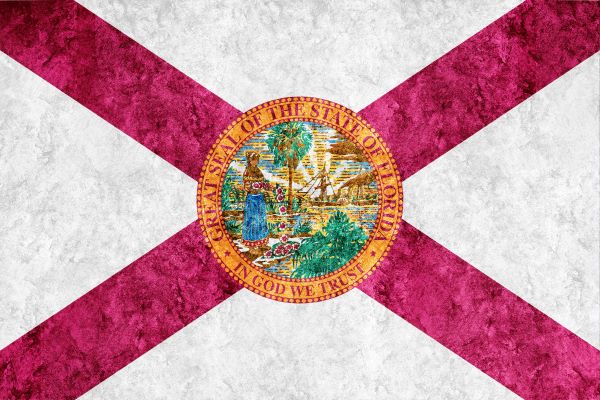Florida lawmakers have agreed to convene in another special session – the sixth in three years – this time to sanction the country of Iran but with a little indirect Florida property insurance relief also on the agenda.
The call for a Nov. 6 special session caught many in the state by surprise. Insurance interests and legislators had already begun to focus on the 2024 regular session, which is set to start Jan. 9.
A joint proclamation from legislative leaders and a statement by Gov. Ron DeSantis, posted Friday, were not specific on which insurance matters will be addressed at the Nov. 6 special session. The proclamation notes only that lawmakers will “provide tax relief and other financial assistance related to damages resulting from Hurricane Idalia” and will expand and fund resiliency efforts related to natural disasters, including tax breaks for families and businesses, plus assistance to farmers.
DeSantis’ statement said the gathering will include “lowering the costs of homeowners’ insurance,” but gave no details.
No bills relating directly to that had been filed by Friday, but Florida’s chief financial officer said that the session would renew funding for the popular My Safe Florida Home wind fortification program. The program provides matching grants up to $10,000 for homeowners to retrofit their homes to be more resistant to winds, mitigation work that should result in premium discounts.
“The My Safe Florida Home Program has been a huge success,” CFO Jimmy Patronis said in statement Friday. “With all the cash obligated for work, the governor and Legislature are taking proactive steps to help more policyholders, without waiting for the regular session. This is a big deal.”
The program, which officials have said is the largest wind mitigation program in the country, was launched in 2006 but was defunded due to scandals and long waiting lists for the fortification work. It was revived in 2022 and Florida lawmakers since then have provided millions in funding. Some 70,000 homeowners have applied for grants, $209 million has been set aside for grants, and $23 million has been disbursed, program director Steven Fielder said.
The work can include stronger roof-to-wall connections, new windows or window and door coverings. Several studies have found that homes built to newer Florida building codes, which mitigation retrofits attempt to emulate to a large degree, usually sustain much less damage in hurricane winds. A report released this week by Moody’s analytics firm notes that homes built to 1990s building codes suffered about $28,500 in damage in extreme winds, compared to just $4,600 in damage for a structure built to 2022 building codes.
Sponsored by Florida Surplus Lines Service Office (FSLSO)
The average premium discount for houses that utilize the My Safe Florida Home grants is about $1,017 per home, Fielder said. But because homeowner premiums have risen so much in recent months, hundreds of grant recipients who undertook the mitigation efforts have not seen their premiums drop, Fielder told a Florida Senate committee hearing this month.
“I’ve been shocked at what some homeowners are paying in premiums in south Florida,” Fielder said.
About 1,325 homeowners this year have received a premium discount or credit due to the wind retrofits, but another 644 saw only smaller premium increases or no increases because their premiums had already spiked after rate filings by their insurers, he noted. Some homeowners have benefitted because the My Safe Florida Home hardening work prevented an insurer from non-renewing the policy, said Fielder, who also is chief business officer for the state Department of Financial Services.
In 2023, House Bill 799 required insurers to offer “reasonable discounts” for mitigation designed to reduced losses from windstorms. At the Senate hearing this month, Florida Insurance Commissioner Michael Yaworsky said it’s time to expand premium credits to apply to other mitigation measures, including leak detection devices. It’s unclear if that will be examined in the Nov. 6 special session.
While the My Safe Florida Home program directly benefits those who qualify for the grants, thousands of other property owners in Florida will likely not see any decrease in insurance costs in coming years. Legislative changes in the last two years have limited what many have called excessive claims litigation, and that has begun to stabilize the market and should help limit future rate increases, but won’t actually reduce costs to consumers, insurance industry experts have said.
One program that advocates have said would provide a break on premiums, perhaps about $100 a month on average, does not appear to be on the agenda for the upcoming session.
What’s been called the Florida Insurance Rate Reduction Mechanism would set up another state-backed reinsurance program, similar to but at a lower level than the Florida Hurricane Catastrophe Fund, according to a proposal from former Florida Deputy Insurance Commissioner Lisa Miller and from Paul Handerhan, president of the Federal Association for Insurance Reform.
The plan would provide optional but lower-cost reinsurance, up to $3 billion, at a time that reinsurers have raised prices for Florida property insurers by as much as 100% in the last two years. The coverage would attach at $500 million to $1 billion.
That would result in immediate savings that could be passed on to policyholders within four months, Miller and Handerhan noted.
Previous proposals to expand the cat fund or provide a similar layer of state-backed reinsurance have not made it past committees in other legislative sessions in recent years. Two relatively small reinsurance programs approved in the last two years have been criticized as two expensive or did not go far enough to help insurance carriers facing soaring costs.
Senate President Kathleen Passidomo, R-Naples, whose own home was damaged in last year’s Hurricane Ian, did not address the reinsurance proposal in a statement Friday. An aide noted that for legislation to be considered at the special session, it must pertain to a topic listed in the proclamation.
“I remain committed to reforms we passed in 2022 and earlier this year, but I know those measures will take time to impact the
market in a meaningful way,” Passidomo said in a memorandum to senators. “The good news is we are already seeing new insurers and new private capital enter Florida.”
The session will focus on the home fortification program as a way to lower home insurance costs, she noted.
One bill filed last week will probably not make it on to the agenda. Senate Bill 102, by Sen. Shevrin Jones, D-Miami, would make the state’s insurance commissioner an elected position and would prohibit the commissioner from working for regulated entities for at least 7 years after leaving office. The bill also would establish an insurance regulation commission and would bar insurers from claiming insolvency if they continue to operate in other states.
The Nov. 6 special session’s inclusion of agriculture losses from Idalia also caught some by surprise. Idalia, which hit the Big Bend part of Florida on Aug. 30, has produced agriculture losses of more $78 million, losses that are expected to keep rising, according to a recent University of Florida report. Property insurance losses from Idalia are so far are estimated at almost $270 million, the Florida Office of Insurance Regulation reported last week. Some 24,000 claims have been filed from the storm. Much of the damage from the storm was due to storm surge and flooding, not covered by property insurance.
The main thrust of the Nov. 6 special session came from another storm: The Oct. 7 attack by Hamas Palestinian militants against Israel. DeSantis and lawmakers said the special session will expand the number of companies to be scrutinized for doing business in Iran, which has supported the Hamas operations.
“Following the horrific atrocities committed by Iranian-backed terrorist group Hamas against Israel, I am calling on the Florida Legislature to act swiftly to ensure our state does not send a penny to the Iranian terror state,” said DeSantis, who is running for president.
One Democrat lawmaker told the Orlando Sentinel that the special session was little more than a way for DeSantis to gain publicity for his presidential ambitions, as polls show him trailing far behind the frontrunner.
**Article obtained from: Insurance Journal, by William Rabb, Published 10/23/2023
https://www.insurancejournal.com/news/southeast/2023/10/23/745132.htm






